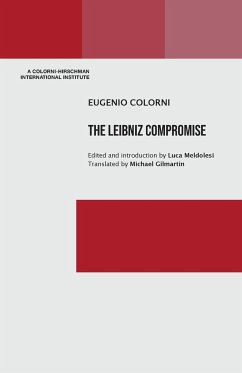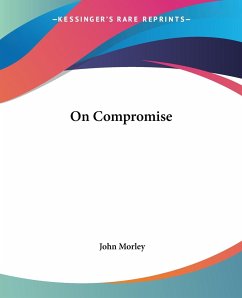. . . the shift from Eugeniös main student interest in science in favor of theoretical philosophy, on one hand, and his post-graduation "German period," on the other (along with the visible maturation of his political awareness), in the end led Colorni to pursue in depth the study of Leibniz¿s original texts. It is therefore possible that his postgraduate thesis, The Youthful Philosophy of Leibniz (1933), contained some foretaste of what would later become a key feature of Colorni¿s Leibniz studies-"translating" Leibniz¿s work into modern terms, so as to make it accessible to contemporary philosophers. -From the Introduction The Leibniz Compromise captures the intellectual shift in the thinking and writing of Eugenio Colorni, foreshadowing the work to come.
Bitte wählen Sie Ihr Anliegen aus.
Rechnungen
Retourenschein anfordern
Bestellstatus
Storno








